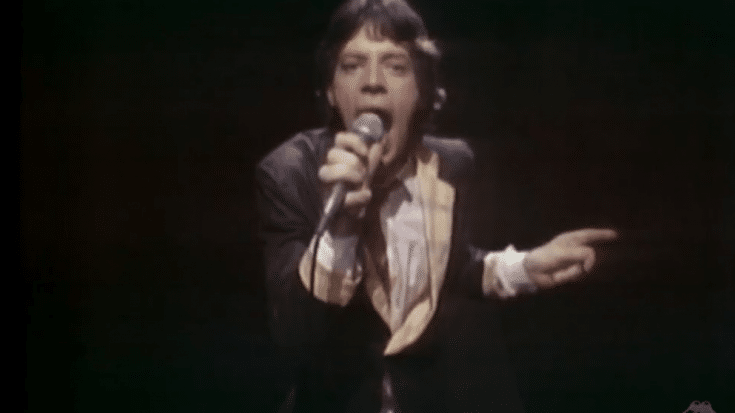10 Classic Rock Lyrics That Wouldn’t Be Written Today

via The Rolling Stones / YouTube
Many classic rock songs from past decades contain lyrics that, by today’s standards, are considered inappropriate or offensive. These songs reflect the cultural norms of their time, but they also highlight how societal values have evolved. Here are ten classic rock lyrics that likely wouldn’t be written or released in the same way today.
1. “Under My Thumb” – The Rolling Stones (1966)
This song describes a man asserting control over a woman, referring to her as a “squirmin’ dog who’s just had her day.” The lyrics suggest a dynamic where the woman has been subdued to fit the man’s desires.
Such themes of dominance and control in relationships are now widely criticized for promoting unhealthy power dynamics. The song’s portrayal of emotional manipulation would likely face significant backlash if released today.
2. “Christine Sixteen” – Kiss (1977)
In this track, the narrator expresses infatuation with a 16-year-old girl, singing about his desire despite acknowledging her age. Lines like “I don’t usually say things like this to girls your age” highlight the problematic nature of the song.
Today, such lyrics would be deemed inappropriate, as they romanticize relationships with minors. The song’s content raises concerns about the normalization of predatory behavior in music.
3. “Run for Your Life” – The Beatles (1965)
This song features a narrator warning his partner that if he catches her with another man, he’ll end her life. The chorus, “Run for your life if you can, little girl,” underscores the threatening tone.
Such expressions of possessiveness and threats of violence are now recognized as signs of abusive behavior. Modern audiences are more critical of lyrics that depict or condone such actions.
4. “Money for Nothing” – Dire Straits (1985)
This song includes a derogatory term for gay men, used multiple times in the lyrics. While the band has stated that the song is from the perspective of a character, the language has sparked controversy.
In 2011, the Canadian Broadcast Standards Council ruled that the unedited version was unacceptable for airplay due to its offensive language. Such terminology is now widely condemned and would likely be avoided in contemporary songwriting.
5. “Sweet Home Alabama” – Lynyrd Skynyrd (1974)
This song references Alabama Governor George Wallace, known for his pro-segregation stance, with the line “In Birmingham they love the governor.” While the band has stated that the lyrics were misunderstood, the association has drawn criticism.
The song’s perceived defense of Southern pride, without acknowledging the region’s history of racial issues, has made it a subject of debate. Modern listeners often scrutinize such lyrics for their historical and cultural implications.
6. “Only the Good Die Young” – Billy Joel (1977)
In this track, the narrator tries to persuade a Catholic girl to abandon her beliefs and engage in premarital sex. Lyrics like “You Catholic girls start much too late” have been criticized for promoting disrespect towards religious values.
Religious groups protested the song upon its release, leading to bans on certain radio stations. Billy Joel later acknowledged that the song reflects a selfish perspective, focusing on his own desires over the girl’s beliefs.
7. “Brown Sugar” – The Rolling Stones (1971)
This song contains references to slavery, sexual violence, and underage sex, with lyrics that have been widely criticized for their insensitivity. The opening lines depict a young Black woman subjected to abuse.
While the song was a commercial success, its content has led to reevaluations of its place in music history. Modern audiences are more attuned to the problematic nature of such themes.
8. “Island Girl” – Elton John (1975)
This track tells the story of a Jamaican sex worker, with lyrics that have been criticized for being both racist and sexist. Phrases like “Black as coal, but she burns like fire” objectify and stereotype the subject.
Elton John has since removed the song from his live performances, acknowledging its problematic content. The song serves as an example of how past works are reassessed in light of evolving social standards.
9. “Don’t Stand So Close to Me” – The Police (1980)
This song narrates a teacher’s inappropriate attraction to a student, highlighting a taboo subject. Lyrics like “Young teacher, the subject of schoolgirl fantasy” have been criticized for romanticizing such relationships.
In today’s context, the song’s theme is considered highly inappropriate, as it touches on abuse of power and exploitation. Modern audiences are more critical of media that portrays such dynamics without clear condemnation.
10. “Jailbait” – Ted Nugent (1981)
This song openly discusses a relationship with a 13-year-old girl, with lyrics that are explicit and disturbing. The narrator even suggests sharing the girl with a police officer.
Such content is unequivocally condemned today, as it promotes illegal and unethical behavior. The song stands as a stark reminder of how societal norms have shifted to prioritize the protection and respect of minors.




























